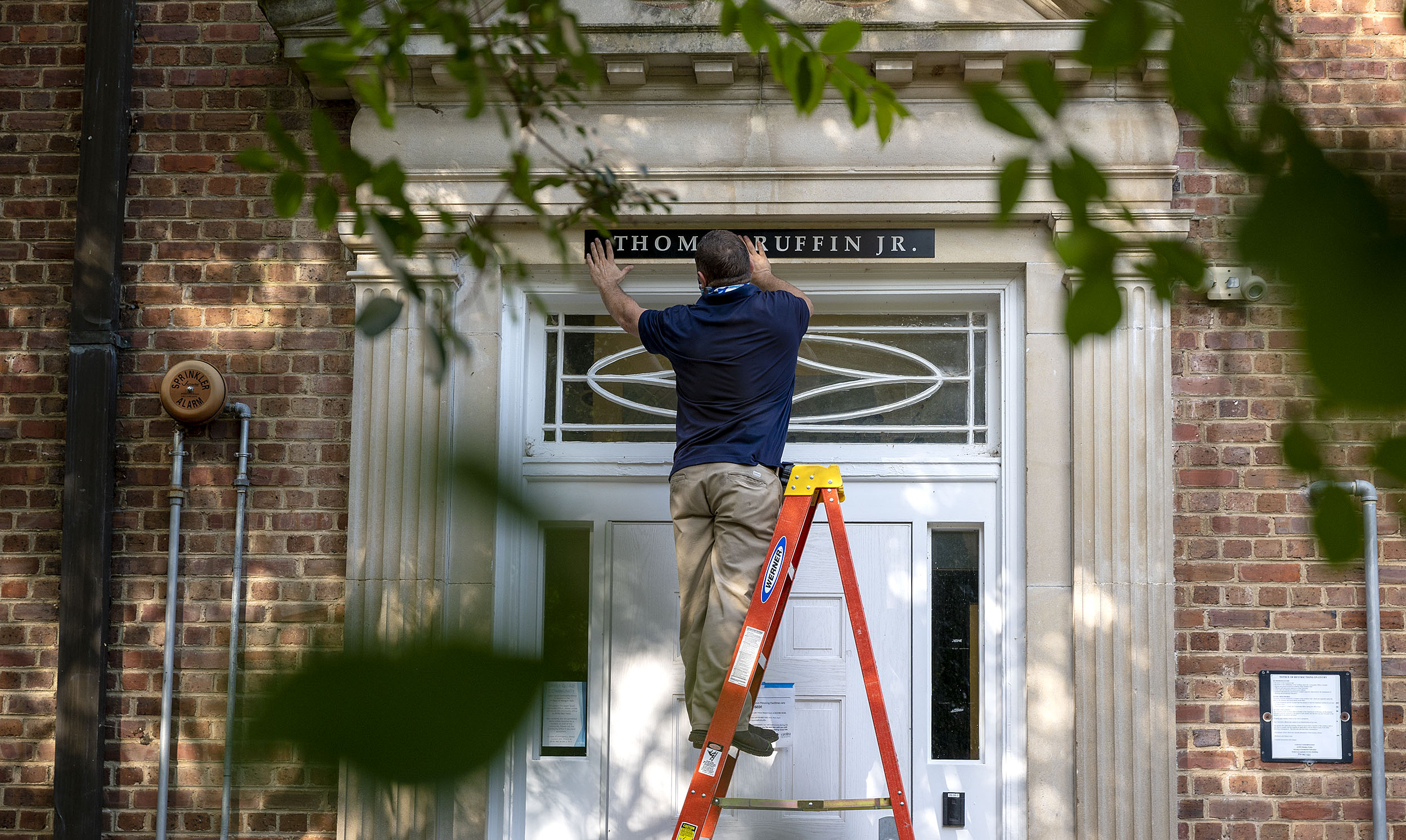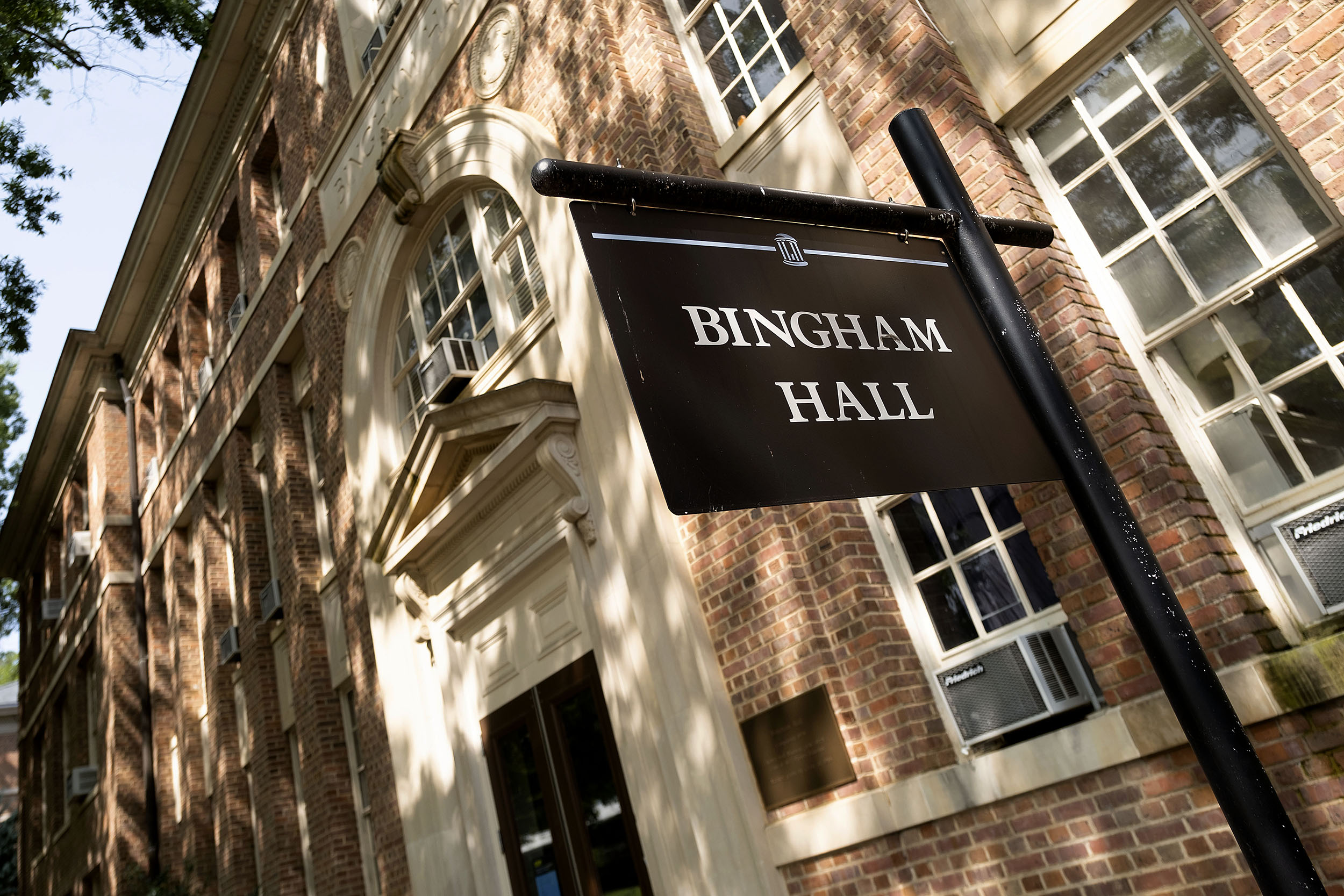Commission Says Remove Ruffin Jr., Bingham Names
Posted on Sept. 18, 2020
Ruffin Jr. (1824-89) and Bingham (1838-1927) had strong ties to the Ku Klux Klan and violence in support of white supremacy. (Grant Halverson ’93)
The University’s Commission on History, Race and a Way Forward has recommended removal of two more names from campus buildings because of their ties to white supremacy violence.
Commission members voted unanimously to recommend the removal of the names of Thomas Ruffin Jr. (class of 1844) from a 1922 residence hall and Robert Hall Bingham (class of 1857) from a classroom building built in 1929. Bingham, once home to the English department, now houses the department of communications.
A committee appointed by Chancellor Kevin Guskiewicz will review the commission’s work, after which he will decide whether to recommend removal to the trustees.

Bingham, once home to the English department, now houses the department of communications. (UNC/Jon Gardiner ’98)
Ruffin’s father’s name was taken off the dorm last summer after the trustees also ordered the names of Julian Carr (class of 1866), Josephus Daniels (class of 1885) and former Gov. Charles Aycock (class of 1880) taken off three other buildings. The younger Ruffin’s name remained pending further research.
Ruffin Jr. (1824-89) and Bingham (1838-1927) had strong ties to the Ku Klux Klan and violence in support of white supremacy.
“We now do have a documentary record that ties Thomas Ruffin [Jr.] quite directly to Klan violence in this part of the state,” said commission co-chair Jim Leloudis ’77 (’89 PhD). That evidence includes an 1873 letter written by the younger Ruffin to advocate for amnesty for the Klansmen who murdered a Black Republican politician.
Ruffin was a Confederate officer and military judge who served as an associate justice on the state Supreme Court during and after the Civil War.
In his own words, from a Dec. 27, 1873, letter advocating amnesty for Ku Klux Klan members charged with lynching Wyatt Outlaw, a Black town commissioner, in Alamance County: “My solemn conviction is that the humane policy of putting an end to all prosecutions growing out of those times will have the effect of, not only to quiet the public mind, but to make good law-abiding citizens of the parties themselves, all of whom are young men.”
“History does have implications, and history does have consequences.”
—Commission member Danita Mason-Hogans
The commission received a request to examine the record of Bingham, an educator, from one of his grandchildren.
Founder of the Bingham School in Hillsborough and a strong advocate for public investment in education, Bingham also was a member and organizer of the Klan in Orange County, Leloudis said. In his teaching and his writing, Bingham “promoted racial Anglo-Saxonism, a blood-and-soil strain of white supremacist ideology” and “celebrated racist violence as a civilizing force and instrument of order.”
Leloudis referred in particular to an article Bingham wrote for a July 1900 issue of Harper’s Monthly Magazine, “An Ex-Slaveholder’s View of the Negro Question in the South,” in which Bingham called Anglo-Saxons “God’s kings of men” and predicted the “gradual extinction” of Black people.
“This is really a quite extreme set of beliefs,” Leloudis said.
Of the Ruffin and Bingham buildings, Leloudis said, “Those names were put on the landscape quite purposely as a part of legitimizing white supremacy and Jim Crow.”
Commission member Danita Mason-Hogans praised the Bingham family for coming forward with more historical information about their ancestor, saying, “This is the type of collaboration that we need.”
She also drew a parallel from the past to the present: “So much of the violence today has been in the name of law and order, using civilizing force and people hiding behind this whole characterization of Black and brown folk in terms of violence. History does have implications, and history does have consequences.”
